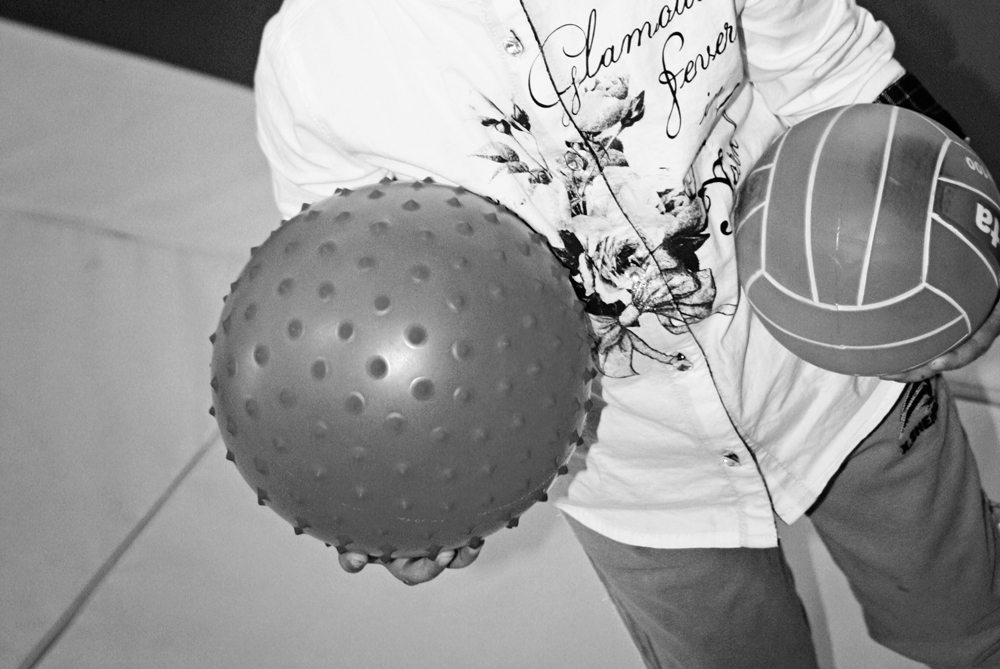“If the child is older, he or she may hide toys or hoard food, because that is what they’d do in the orphanage if given the chance” – Silent Tears: A Journey of Hope in a Chinese Orphanage
“Hey, Mom? I can’t find the container that has the hair clips in it.”
My oldest daughter had come to me because it was time to brush teeth, brush hair, make beds, get dressed… all of the usual morning get-ready activities, but the hair clips were no where to be found. Hair care items disappear in our house like socks in the dryer, so when we slowly run out of rubber bands and the such, I just suck it up and go purchase more. But this time was different. The clips, AND the container? That was not the norm. My heart began to sink; I suspected I knew exactly what had happened to the container.
I took a breath, walked into our younger daughter’s room, and started looking around. I pulled out a basket from a shelf on her dresser and my heart sank further. I sat down on the floor, dumbfounded, staring at a collection of things that was stuffed into the overflowing basket.
Together my husband and I called our youngest into the room. She bounced in, and then stopped and grinned sheepishly when she saw the basket. She knew. The things in there weren’t hers. They were things we thought had been left somewhere else (like a Bible belonging to her brother), they were things we thought had just disappeared (like a dozen hair ties).
We calmly sorted through everything with her, and she returned the things that didn’t belong to her to their owners, to their proper places in the house, and then we moved on with our day, but I was shaken. That day, that experience opened my eyes to what hiding and hoarding looked like. We knew that there were certain behaviors that were likely to be seen from post-adoptive children, especially those who had grown up in an orphanage setting. On that list, “hoarding” was the one I was probably least concerned about! I remember looking at the dozen behaviors listed and thinking I would most likely struggle with something like sleep issues or a child that acted out sexually. I never dreamed that hoarding would be a challenge.
I was wrong.
And I have been humbled.
Looking back, I can see that this was something that started long before Julianne walked into the office building where we met her in China. Our daughter spent almost four years in a relatively nice orphanage, but with so many children to care for, it’s next to impossible to have the more focused attention that a child gets in a family, especially if the room is filled with children who have medical special needs. The summer before we traveled, we got a video of her playing with a few balls. I laughed when I watched it thinking, “Oh, she likes to play with balls! I need to make sure to get her some like those!” In reality, she was most likely holding on to all of the balls at the same time because her time in the playroom was limited, and she felt the need to make the most of her opportunity which involved keeping as many toys as she could as close as she could.
We came prepared to our Gotcha-moment with a little backpack I had monogramed with her new initials. It was filled with items I hoped would comfort her during what I knew was going to be a challenging transition. She didn’t know what to do with the backpack when I tentatively held it out to her. But she soon figured out that it was a fun something that was full of exciting surprises. We went to the store to purchase needed items immediately after getting her, and then returned to the hotel where the enormity of having a daughter that had been an orphan just hours earlier was realized.
It was January, and COLD, and we were not in a part of the city with parks within walking distance. We brought along bath toys thinking that would be a fun way to bond and attach inside since our outside time was limited. We put her in the bath and pulled out a plastic fishing pole and some magnetic fish for her to play with in the water. She grabbed the pole and as many fish as she could and played. I say “played”, but it was a desperate, frantic sort of play, like she was afraid that this was it; like she feared the toys would disappear once she got out of the bath.
“The next time I visited, I brought dolls that came with a bathtub, comb, and other accessories… They clung to their toys with ferocity and never relaxed enough to play.” – Silent Tears: A Journey of Hope in a Chinese Orphanage
Her backpack quickly became a beloved item, and she wouldn’t go anywhere without her “ba-kay”! By the end of the trip the backpack was not just a comfort item, it had become a storage facility for treasures she found. Chapstick? Yep. In the backpack. My mascara? Yep. In the backpack. Pens from the hotel desk? Yep. Miscellaneous other items? You got it. ANYthing she saw that she could reach out and hold on to, she put in the backpack. Call it jetlag, overall fatigue, or plain ‘ol shock, but we thought it was kind of cute and funny that she was taking these seemingly random items and stashing them. We naively figured that once we were back home she would quickly learn that there were just some things that weren’t community property. We were obviously blind to the reality of the behavior that was being acted out.
During our first weeks home, her new environment was filled with stimuli she was not used to and it overwhelmed her. I feel like we do a fairly decent job of “stuff management” in our home. We don’t keep and store things if they are not used or valuable, but it was still too much for her. She reacted to the immense life change by choosing and holding on to items fiercely, and she would refuse to surrender them. As boundaries were placed for her protection, she reacted strongly by creating and building stashes of things that she felt she had a measure of control over.
The morning we discovered the basket full of treasures she had collected and hidden in her room there was a whole gamut of emotions to process.
I was sad. I was angry. I felt nauseated. I was frustrated.
The little lies began to filter into my mind and make their way down to my heart.
“You’re not good enough to be her mother…”
“This is never going to change…”
“You can’t do anything to help her…”
“She should have been with a different family…”
ALL. LIES.
Julianne was unfamiliar with the idea of personal items or personal space. She was so unfamiliar with having things that were hers that she would latch onto and claim things, any type of thing, to be hers. We implemented strategies to help her; keeping toys very organized with a special place for each toy to call “home”. We tried giving her a basket in her room that was specifically for her toys so that she could have a sense of ownership in that way. None of the strategies we tried were working; she used any and every receptacle as a place to hide items from around the house.
Our daughter has EB, which requires that we pop her blisters as quickly as we see them to prevent them from growing too large. I felt the same thing was happening with this behavior. If we caught her quickly trying to hide something, we could prevent it from becoming an out-of-control pile.
We are now at exactly the six-month mark being home and Julianne’s room is still fairly toy-free. It is easier for her to relax in her space if there is not as much stimulation going on. We recently moved a child-sized bench back into her room, and continuously talk about putting her precious-to-her items ON the bench, not UNDER it. We tell her that her things are SAFE here, and that they are going to stay here with her. Even papers with drawings that I would deem trash-able, after a few days I leave be… if they are on her bench. Baskets for toys weren’t working for her because they have depth, things can disappear into them and be hidden. Her bench is in the open; the things on it are out of hiding. We talk about where things belong by asking her “where is the book’s home?” These conversations often lead to me reminding her that she is at home, too. She has a place in this world to call her own, and that place is our family.
On rare occasions, she will still hide something, but these moments are usually on the heels of a new or stressful experience. Overall, though, she is doing amazingly well. Six months home and I can’t help but look back and see all of the changes and know that the Father who gently called us to this journey has never left our sides. The frantic, desperate play that happened those first few weeks has relaxed. She knows that if we leave a toy in the playroom before bedtime that it will still be there when she wakes up in the morning. The backpack that she carried everywhere in China is still something she clings to when she is uncomfortable in a new situation, but she no longer hides things in it that shouldn’t be in it.
Handling this post-orphanage behavior has been a challenge! We are learning what it looks like to parent our child with a traumatic past with grace and understanding. We don’t always get it right, but we are learning. She is learning to let go of her death grip on items she deems valuable. Letting go of this behavior is a big step for her! After all, she is relinquishing a survival mechanism that took four years to develop! We walk carefully with her, showing her that we respect her precious things by allowing her to maintain a little control over a life that has spun wildly out of her control in the last few months.
I will probably always feel sadness when we encounter a situation that I know has its roots in her orphanage past. It’s a heavy weight for our little girl to carry, but at least now she doesn’t have to carry it on her own. I remind myself that this behavior doesn’t have anything to do with us, like the whispers that the Enemy would like me to believe. The behaviors don’t have anything to do with who she is at her core, either. They are simply consequences of the past that we all have to walk through, together, as a family.
Our daughter is slowly learning that we are trustworthy; that this new reality of hers is here to stay; that she is here to stay. Her behaviors have already started to shift; she is taking on the mantle of daughterhood that is hers to keep.





























Leave a Reply